ZEN Backstage implementation
What is Backstage, and why should I use it?
Backstage is an open platform for building developer portals – locations where companies can engage in technical outreach and education. These portals enable the provision of software documentation, example code, tools, and knowledge bases to enhance communication and functional collaboration. From a developer's perspective, a developer portal simplifies API management.
Backstage offers a centralized catalogue of microservices and infrastructure, empowering product teams to ship quickly without compromising autonomy. It unifies all infrastructure tooling, services, and technical documentation to create a streamlined development environment from end to end.
How we use Backstage at ZEN Software
ZEN Software's Developer Portal is set up to centralize crucial project data, incorporating services like API documentation, Lighthouse, and Tech Radar. Additionally, the portal features an integrated Agile Analytics plugin, providing a concise summary report for enhanced project management efficiency. This platform caters to the diverse needs of developers and companies, offering a holistic solution for optimized project tracking.
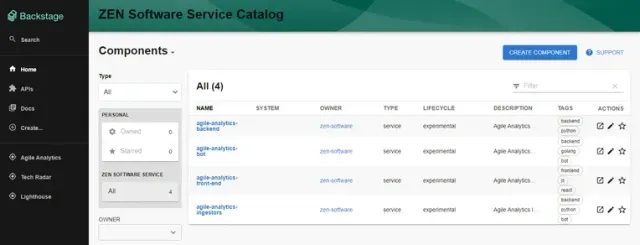
Here are some of the implemented features:
Identity-Aware Proxy
Identity-Aware Proxy (IAP) is a global service by Google Cloud. IAP establishes a central authorization layer for applications accessed by HTTPS, allowing an application-level access control model instead of relying on network-level firewalls.
When IAP protects an application or resource, it can only be accessed through the proxy by principals, also known as users, with the correct Identity and Access Management (IAM) role. Granting a user access to an application or resource by IAP subjects them to fine-grained access controls implemented by the product in use without requiring a VPN. When attempting to access an IAP-secured resource, IAP performs authentication and authorization checks.
API Docs
Incorporating the API Docs Backstage plugin allows the discovery and display of API entities defined in machine-readable formats, providing human-readable documentation. Using the OpenAPI format, ZEN Software accumulated its documentation in the Backstage Developer Portal.
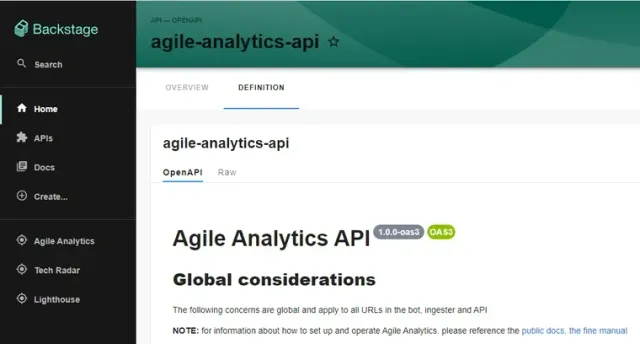
Lighthouse Audits
Google's Lighthouse auditing tool for websites is an excellent open-source resource for benchmarking and improving website accessibility, performance, SEO, and best practices.
What makes the Backstage plugin implementation unique is its ability to track a website's audit performance over time using Lighthouse's primary metrics rather than simply running reports. Sparklines provides a quick overview of how all your websites perform over recent builds.
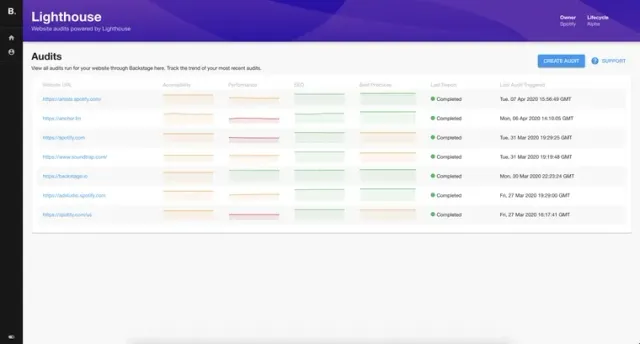
Agile Analytics Plugin
Agile Analytics is a Software Development Management application assisted by A.I. It collects all relevant data from your software systems and translates it into clear dashboards with concrete information about your teams' performance, allowing better control over software projects.
Agile Analytics provides a Backstage plugin that integrates a summary of the reports generated by Agile Analytics into your Backstage Developer portal.
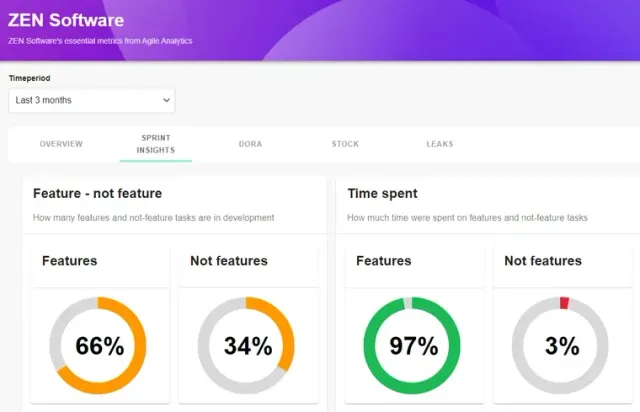
Results
As a result of ZEN's Backstage Developer portal implementation, ZEN Software achieved the following goals:
Provided a single point of entry for development teams
Established a centralized Service Catalog
Improved discoverability of people, services, and documentation
Centralized technical documentation and provided a Technology Radar
Displayed DevOps Metrics for all services and teams
Through this initiative, ZEN Software has met its goals and paved the way for a more cohesive and efficient development environment, showcasing the potential of Backstage as a comprehensive solution for modern software development practices.

Make Agile Work for You
We're here to help you seamlessly implement DevOps, SRE, Scrum, LeSS, or Kanban!
Read more:

The Cloud Is Software — But What Kind of Software?
Everyone talks about the cloud as if it were some magical place. But peel back the layers, and you'll find something ver...

The AI Revolution: How Generative AI is Making SEO practices Obsolete!
Artificial Intelligence (AI) and Generative AI are leading a revolution that will obsolete traditional SEO practices lik...

What’s wrong with GA4, or how to find essential reports in Google Analytics
Google Analytics 4 (GA4) reporting has received some criticism and feedback from users since its release. Despite GA4 of...

Easy automated Container registry management to save on storage costs
When using docker in any meaningful way in production you need to manage your container images. You need to make sure th...
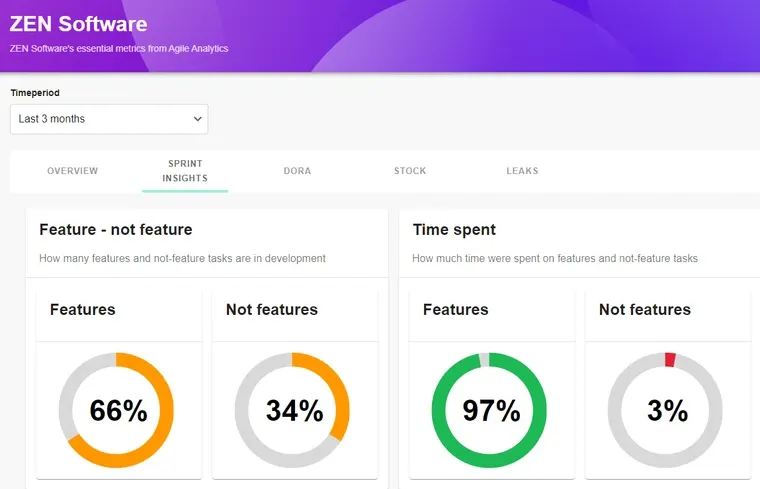
ZEN Backstage implementation
Backstage is an open platform for building developer portals – locations where companies can engage in technical outreac...

Revolutionising Regulatory-Compliant Voice Data Management with CyberCloud CallController
In an era where regulatory compliance is paramount for organizations governed by stringent frameworks such as MiFID, PCI...
